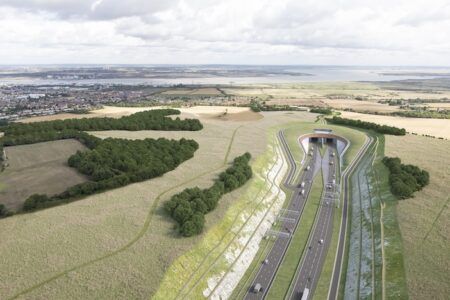The City of Nottingham is to use a new open-source IoT platform to effectively manage the distribution of power across a fleet of electric vehicles (EVs), battery storage and solar power, harnessing innovative vehicle-to-grid (V2G) technology in the process.
The intelligent energy management system (iEMS) from OpenRemote is being used for its Clean Mobil Energy project to enable the city’s energy managers to maximize the use of locally produced renewable energy and cut carbon emissions and costs associated with charging EVs.
Nottingham City’s pilot site at the Eastcroft Depot will combine three main elements: solar panels to generate electricity, a large lithium-Ion battery for energy storage, and a fleet of 40 EVs. V2G technology enables the EVs to be charged and discharged for operational purposes as well as providing additional short-term energy storage and grid balancing.
“Energy management requires monitoring and controlling energy generation, energy consumption, and short-term storage systems to strive for maximum financial benefits or carbon savings”, says Pierre Kil, CEO of OpenRemote. “With an open source IoT platform you can connect all assets regardless of brand and protocol. OpenRemote’s advanced IoT capabilities ensure smart optimization to meet set targets. The system forecasts solar power generation, consumption and electricity pricing for the upcoming 24 hours to define the optimal charging and discharging cycles for the EV batteries. The optimization reduces withdrawals from the main electricity supply grid and maximizes use of locally produced energy.”
An energy dashboard provides the city’s energy managers with continuous insight into the performance of each component and lets him monitor key performance indicators such as local energy, self-consumption and saved costs. A mobile app enables the energy managers or maintenance crew to evaluate the system performance on the go. They are notified by the system in the event of malfunctioning or uncommon behavior, enabling them to take immediate corrective action.
To manage the fleet of EVs, the iEMS can establish optimum charging schedules for EVs based on desired parameters such as lowest cost or highest share of renewable energy. EVs are charged to their minimum mileage or beyond the minimum mileage at times of surplus green electricity or low electricity tariffs. The system allows fleet managers to define minimum mileage per fleet, while providing important insights in the day-to-day operations, performance and total energy use of each group of vehicles.
“Nottingham has set the UK’s most ambitious Carbon Neutral target and we are leading the way when it comes to green transport,” says Laura Chippendale, energy projects manager for Nottingham City Council. “Our aim is to maximize the use of locally generated renewable energy and cut carbon emissions. Thanks to OpenRemote’s advanced IoT solution, the city’s fleet of electric vehicles can be charged with 100% renewable energy offered at an optimum price. The iEMS will increase the economic value of renewable energy and significantly reduce CO2 emissions.”





